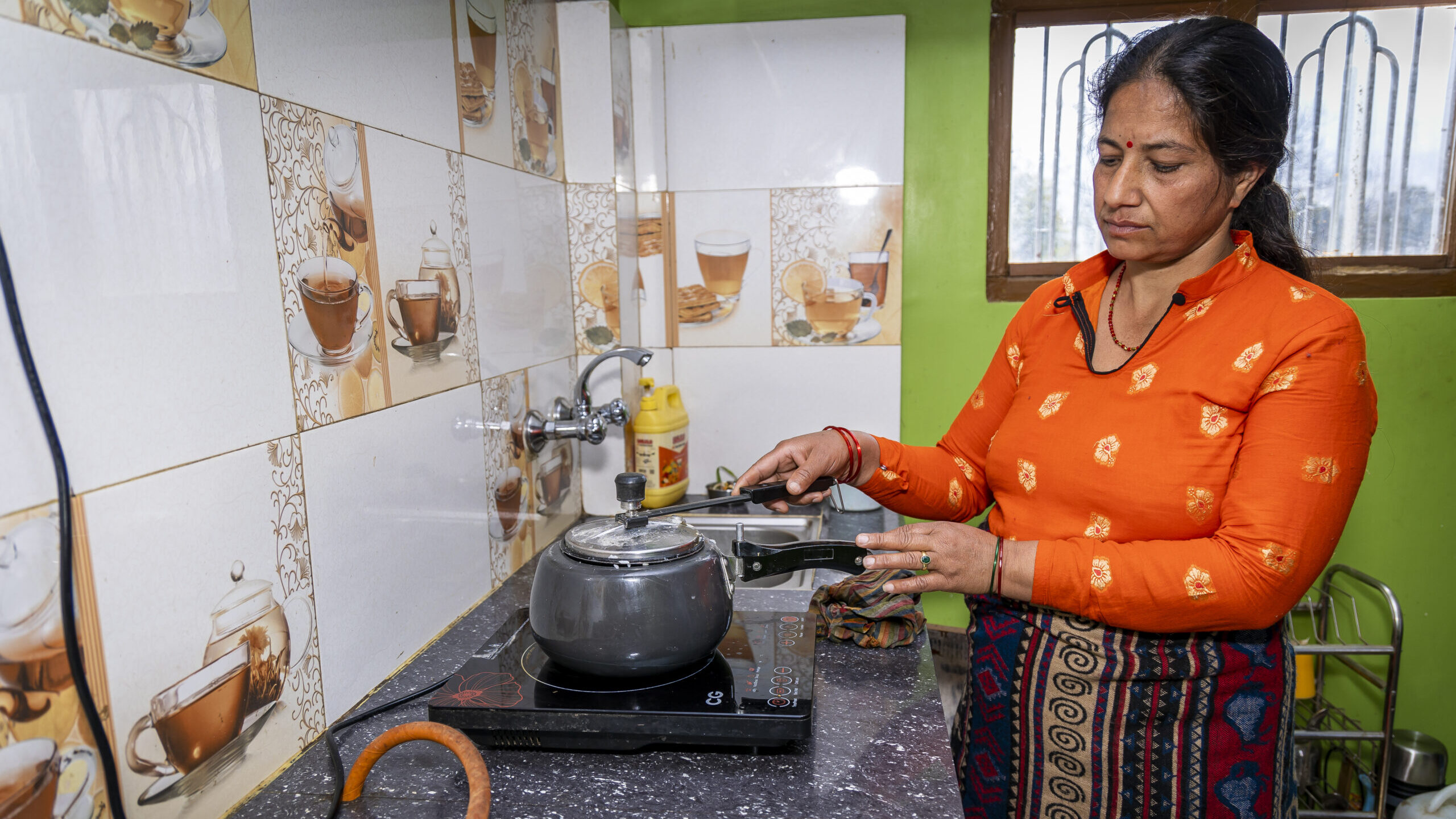Rethinking the Elements of a Clean Cooking Transition

Dipti Paudel is a chemical engineer and researcher at the Indian Institute of Technology (IIT) Madras in Chennai, India. Her research explores the potential of artificial intelligence (AI) and machine learning in material science, which she hopes will contribute to developing higher-performing and more efficient energy systems.
CCA interviewed Paudel about what motivates her work and what other steps must be taken to expand access to clean cooking solutions.
This story is part of a series showcasing women change-makers in the clean cooking sector.
If you ask Dipti Paudel, “the transition to clean energy is not just a technical challenge but a moral imperative.”
This deep commitment to helping solve the world’s energy challenges has been a strong motivating factor for Paudel to become a chemical engineer with a research focus on clean cooking. “Despite the smoke and fumes causing my grandmother’s eyes to turn red and itchy, she would insist on cooking our meals when we visited,” Paudel said. “This is a reality for many rural Nepali women and children who spend much time near polluting fuels and cookstoves.”
Paudel realized that just like her father – a civil servant in Nepal – she, too, wanted to make a tangible difference in the lives of people around her. “At the time, chemical engineering was a relatively new field, but I received a lot of positive encouragement,” Paudel said. “I learned valuable lessons about the interplay between science, technology, and human values. My education showed me that we can unlock new and innovative solutions by delving deep into the underlying laws of nature.”
And solutions are badly needed. Paudel’s research with Dr. Sunil Lohani at the University of Kathmandu found that, despite significant efforts by the government and others, 69% of households in Nepal still relied on solid fuels for cooking, with numbers as high as 80% in rural areas (the study covered data from 2000 to 2018).
The reasons for this, according to Paudel, have largely to do with affordability and accessibility.
“Households with more financial resources tend to adopt clean and advanced cooking fuels such as liquified petroleum gas or electric cookstoves, while those struggling financially are more likely to use traditional fuels like wood or dung,” she said. “However, even the most educated and affluent households may not have access to clean energy sources, and thus are forced to rely on locally available fuels for cooking.”
Governments and businesses have a more significant role to play here, says Paudel.
To make clean cooking solutions more affordable, “Financial incentives must be provided to encourage the use of clean fuels and clean energy, especially those with higher upfront costs,” she said. “Evidence-based integrated policies, which not only focus on energy but also aim to improve the socio-economic condition of communities, must be formulated and implemented holistically.”

To improve accessibility, Paudel recommends establishing technical assistance centers to provide routine maintenance and expertise to keep energy supply stations running consistently. “For example, by providing maintenance support and education on the proper use of locally available waste, their composition, and heat insulation techniques for biogas plants with local materials, biogas plants could be kept functional, many of which went dysfunctional after Nepal’s earthquake of 2015,” she said.
Paudel has vast experience researching the policy and technological aspects of clean cooking. She and her research team, including Dr. Sunil Lohani and Dr. Marc Jeuland, have closely studied trends in Nepal’s energy transitions, including how effective past policies have been and how progress can be accelerated. And together with other researchers at Kathmandu University, she has carried out in-depth studies of biogas digesters’ seasonal performance to better understand how system performance varies with temperature changes.
Now, as a postgraduate scholar at IIT Madras, she is exploring how machine learning and AI can speed up the discovery and design of new materials, with its potential to improve clean cooking technologies by monitoring real-time data on emissions and adjusting cookstove settings to promote cleaner cooking practices. By analyzing databases of polymers and their properties, she aims to develop models capable of accurately predicting the properties of new polymers – and ultimately apply these new materials to improve renewable energy technologies.
As engineering tends to be male-dominated, Paudel believes that the clean energy sector would benefit greatly if more women and their experiences were part of shaping the industry’s future.
“One’s gender should have no bearing on one’s ability to contribute,” she said. “It is a heart-wrenching reality that many women in the field of engineering have been quitting their careers due to the unfair gendering of roles and responsibilities, which is why I actively participate in workshops and campaigns centered on women’s empowerment, recognizing the need for greater gender equality and representation. But I am filled with hope and anticipation for the enthusiastic involvement of women in this clean energy revolution, as their contributions and perspectives will be invaluable in shaping a brighter, more equitable future for us all.”
